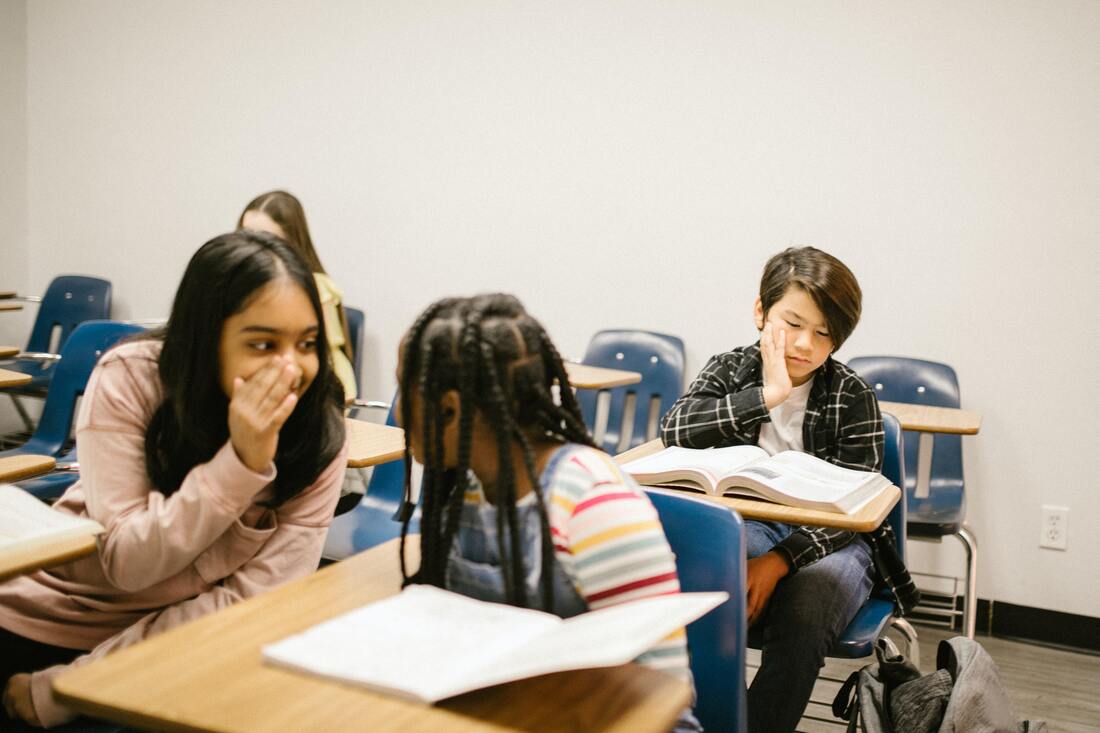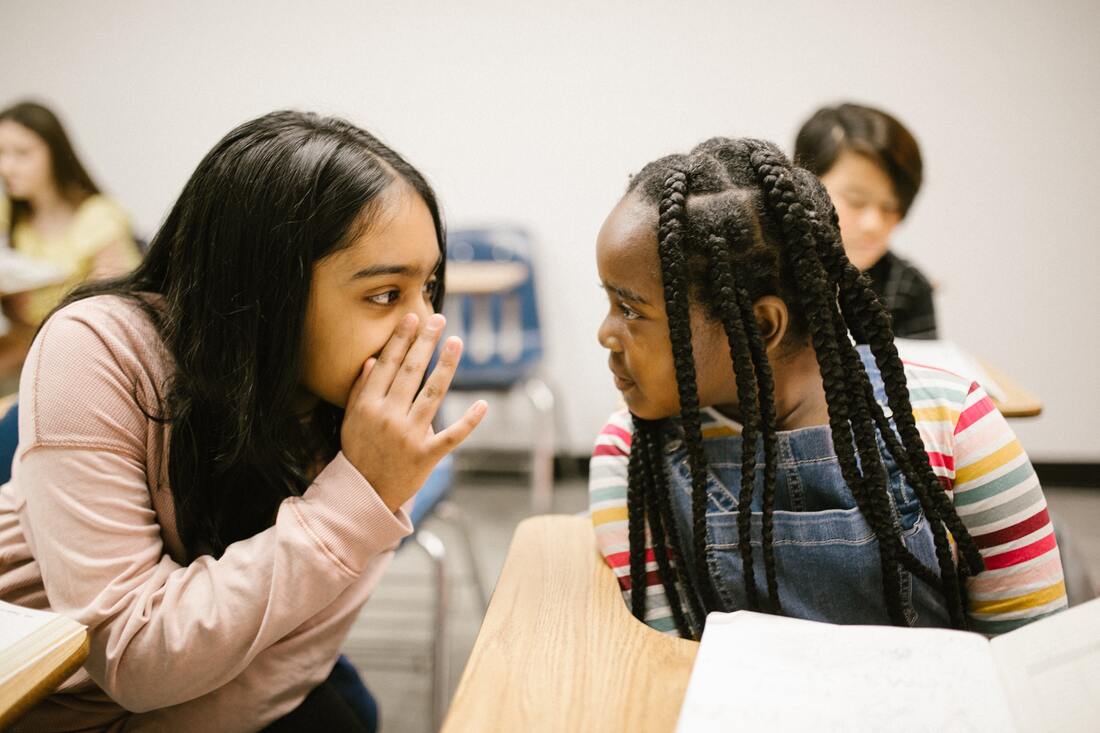|
Bullying is a serious issue that can have a lasting impact on mental health and wellbeing. As a parent it can be heart-breaking to learn that your child is being bullied. We all want the best for our children. We often wonder how they are going at school, hoping for them, and wishing for them a rewarding and safe experience. If you have learned that your child is being bullied at school, there are steps you can take to support your child and address the situation. In this blog post, we’ll explore some tips for what to do if your child is getting bullied. 1. Listen to your child The first step is to listen. Your child may feel confused, scared or even ashamed. If they are telling you they are being bullied then they are demonstrating bravery and self-protection. It is important to acknowledge and reward your child for this healthy, brave behaviour. Encourage them to share their experience without judgment. Validate their emotions and let them know what is happening to them is not ok. Let them know you and the school are going to help make a change. 2. Contact the school and advocate for change Schools have an enormous responsibility. Document the bullying. Contact the school. Speak to educators and administrators that are directly responsible for safety. Talk with educators that know and care about your child. Arrange for a meeting with the teacher, principal, school counsellor, and/ or wellbeing coordinator. Share your concerns and provide any documentation you have. Ask the school directly, what is their bullying and safety policy? Ask what steps the school will take to address the bullying and how they will support your child. 3. Assess the level of risk If it is not safe for your child to attend the school, the school needs to be aware of your concern. If you are confident the school is taking steps to protect and support your child, you may like to follow up, check to see what steps have been taken, and continue advocating for change. 4. Teach your child coping skills Bullying can have a significant impact on self-esteem and confidence. You may have your own coping skills to share, perhaps your child already has a set of excellent skills for resilience and managing adversity. You might like to find and explore resources together online, in books, podcasts, or elsewhere. Encourage them to engage in activities they enjoy, celebrate who they are, spend time with supportive family and friends, or express themselves through art, sport, writing or music. 5. Seek professional help if necessary If your child is struggling to cope with the bullying experience, this is normal. You may need extra time, resources or support. If your child is experiencing significant mental health effects, a psychologist can provide support by teaching your child additional coping strategies, and offering a safe place for them to process the experience and supporting parents. The Victorian Government provides a number of practical steps and advice for parents, schools and teachers to support children who have experienced bullying. You may like to explore the website here https://www.vic.gov.au/bully-stoppers written by Tim Walker
Provisional Psychologist A sinking feeling. Another phone call from your 11 year daughter’s vice principal. Your loving, funny, and creative child has been accused of messaging a friend a heap of unkind names. She has been identified as a bully. Bully is a word heavy with meaning. It will be helpful to approach the situation with a curious mind, focus on what is in your control, and seek support from others. Behaviour as an iceberg Bullying is a description of aggressive behaviour. Like any human behaviour it can be helpful to approach it with curiosity. Some people find it helpful to visualise an iceberg, with the aggressive behaviour being the tip, or what can be experienced, while your daughter’s motivations lie hidden under the surface. To approach with curiosity try:
Circles of control After receiving a phone call about your child’s undesired behaviour, you may have the instinct to activate panic mode. You might ask yourself a hundred unanswerable questions. “Is my child bad?” “What does this mean for her future?” “What are the other parents thinking about my family?” Instead sort the specific factors of the situation into what you can and cannot control. You can do this by drawing two circles on a sheet of paper and listing all influencing factors in a column. Factors can be as vague as “who attends your daughter’s school” to the specific, “what was the last thing I said to my child when I dropped her off at school”. The circles of control activity encourages taking responsibility for what you can control, while letting go of uncontrollable factors. It encourages accountability without martyrdom. Ask for help Finding out your sweet child has been acting aggressively can trigger feelings of shame and confusion. These uncomfortable feelings might encourage you to stay quiet, and to hide the problem from those who love and support you. Try to approach the situation by thinking of a forest ecosystem. Your daughter, you, other kids at her school, school staff, and other supportive people are all in this together. You will all thrive and feel better when there is resolution, just like the plants and animals thrive together in a peaceful forest. You may be surprised who else has experienced a similar situation when you make yourself open to receiving support. Why should we know the difference?A common theme that comes up in working with children and adolescents is bullying. Often I hear reports from clients who feel they are being bullied at school, which is obviously troubling for both the client and the parent, as nobody wants to be bullied and no parent wants to hear that their child is being bullied, or feels uncomfortable going to school. Although a child may genuinely believe that they are being bullied, not all reports of bullying can actually be defined as such. In some cases the child may perceive teasing to be bullying, whether it is intended to be playful and harmless or goes too far and becomes hurtful. In particular, some children may tend to have a more challenging time interpreting social situations and may perceive teasing as bullying. Therefore it is important that all kids and their parents understand the difference so that they can appropriately handle the situation, whether that be to work with the school to address the bullying and/or to seek assistance through school programs, a psychologist or counsellor to help develop and build a child’s resilience and assertive communication skills. What is bullying and teasing?Bullying: The National Centre Against Bullying (NCAB) define it as when an individual or a group of people with more power, repeatedly and intentionally cause hurt or harm to another person or group of people who feel helpless to respond. Therefore bullying is not a single episode of rejection, acts of nastiness or mutual arguments, disagreements or fights. Teasing: Teasing is a social exchange and can be friendly, neutral or negative. Teasing or being mean is different to bullying as there is usually no power imbalance. Although teasing can be hurtful and unkind it’s common among children and so it is important to know the difference as they may require different responses. Whilst I understand it’s common amongst children, I don’t condone bullying or being mean, and feel that it’s important for us to have common terminology so that we can assist children in the most appropriate way. Shivaun Pereira, Educational and Developmental Psychologist Bullying and cyberbullying are serious problems for school aged children. Dealing with school bullying takes a comprehensive, whole school approach where a school works to develop a culture that does not stand for harassment, all students are aware of acceptable versus unacceptable behaviour and there are good programs available for supporting social skill development for both bully and victim. As adults, we need to send the message that bullying is never the fault of the victim. Rather is it a choice made by another to hurt or harm. The research has found some common characteristics of children who are victimised which include being overly sensitive, not standing up for themselves and responding in a passive way. However, this does not mean that the victim is in anyway responsible for being treated poorly. If you are a parent of a child who is the victim of bullying, it is not uncommon to feel helpless. You can speak with the school and even consult with the bully's parent. At the end of the day, however, your child has to deal with their peers independently which can be very distressing. Sometimes parents may even feel like taking things into their own hands by confronting the bully; this should be avoided as it can sometimes cause even more trouble for their child. When I meet with kids who are victims of bullying I find that most of them benefit from support with assertiveness. Assertiveness is about finding the middle ground between reacting passively and aggressively. I think of being assertive as standing up for yourself in a friendly way. This is a skill which can be taught, encouraged, practised and modelled for all children and can be used as a constructive way to respond to bullying. I use Sam the turtle, Andy the shark and Kyle the dolphin to introduce assertiveness to kids. Submissive Sam is very shy and quiet. When confronted with a bully he cries, shakes and retreats into his shell. Submissive Sam speaks in a quiet, shaky voice. He never stands up for himself or says what he is thinking, and he gives in to bullies. He’s scared of what will happen if he does speak up – he worries that it will make things worse. Other kids know that it’s easy to walk all over Submissive Sam and he gets taken advantage of. Aggro Andy is loud, angry and snappy. He is quick to fight and often gets in trouble by the teachers. When someone hurts him he hurts them back. Aggro Andy uses a mean and threatening tone of voice. His body language is overpowering and peers can see when he is getting mad. He is also an easy target because his reactions are predictable. Peers see Aggro Andy as a scary kid who can’t control himself. Or alternatively, they enjoy taunting Andy and watching his reactions. Cool Kyle is a confident kid. When he meets a bully he remains calm (on the outside at least!). He speaks in a firm tone, chooses friendly words, looks others in the eye and stands tall. Cool Kyle doesn’t show the bully that they are getting to him. He doesn’t give them what they want – which is power. Cool Kyle makes good decisions such as ignoring rude words, walking away or using an appropriate ‘come back’ which shows that he won’t put up with being treated badly. Peers see Cool Kyle as level headed and not to be messed with. Over time kids can learn to be more like Cool Kyle. This doesn’t mean that they will feel calm when approached by a bully, but they can learn to portray this. Help your child practise ‘Cool Kyle’ behaviours by role playing bullying scenarios and giving them feedback on how they showed assertiveness. By doing this you are giving your child lifelong skills that can support their development of social skills, confidence and self-esteem. Most importantly, you will be giving your child some tools they can use independently when confronted with peers who bully. For some children, developing their assertiveness skills will be sufficient. However for kids who have experienced ongoing bullying which has impacted on their mood, behaviour and ability to go to school, professional intervention may be required. Speak with your school or a psychologist if you feel your child may need additional support with dealing with bullying and remember bullying requires a coordinated response and should not be left solely in the hands of the victim.
|
Categories
All
|
Hopscotch & HarmonyAt Hopscotch & Harmony Psychology, you can expect compassionate care and evidence-based guidance on your journey to wellness.
With clinics in Werribee and Belmont, as well as providing online counselling to clients who live throughout Australia, our dedicated team of psychologists and dietitians are committed to providing support to children, teenagers and adults. With a focus on understanding your unique needs, we offer tailored solutions to foster growth and resilience. Trust in our experience and dedication as we work together towards your well-being. Welcome to a place where healing begins and possibilities abound. |
Our services |
Contact usHopscotch & Harmony
Child, Teen and Adult Psychology Our Locations:
WERRIBEE: 1/167-179 Shaws Rd
BELMONT: 92 Roslyn Rd AUSTRALIA-WIDE: Online counselling |
Hopscotch and Harmony respectfully recognise the Aboriginal and Torres Strait Islander people as the first Peoples of the continent now called Australia.
We acknowledge the Bunurong and Wadawurrung people of the Kulin Nation, the traditional owners of the land on which we work, and pay our respects to their Elders, past, present and emerging.
© 2024 Hopscotch and Harmony Pty Ltd








 RSS Feed
RSS Feed
